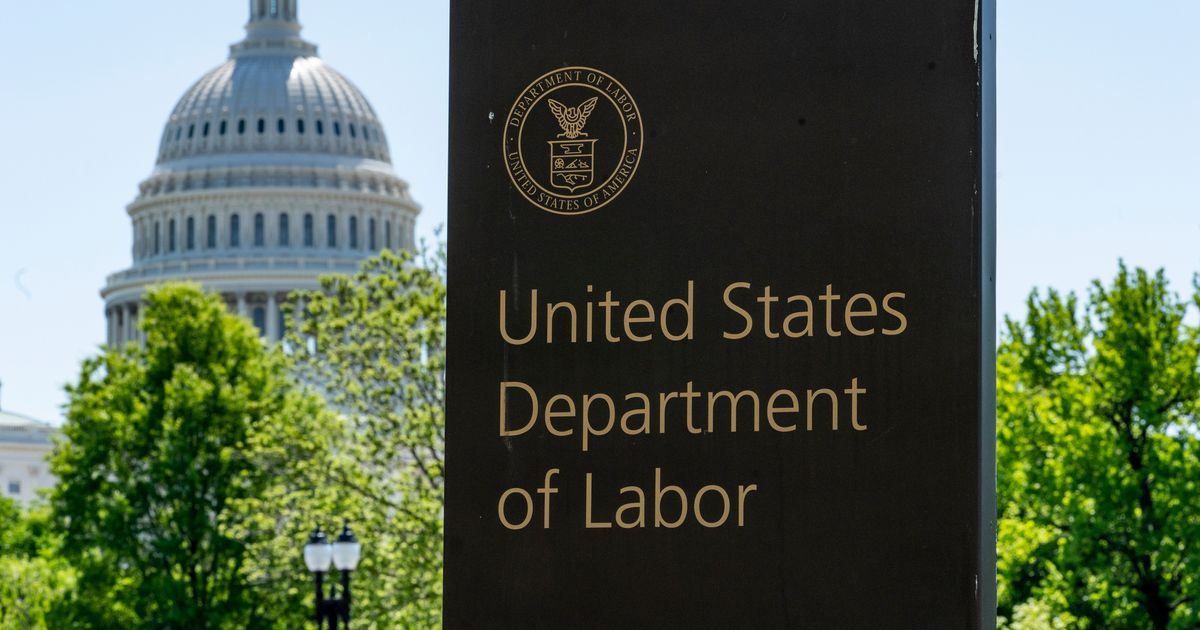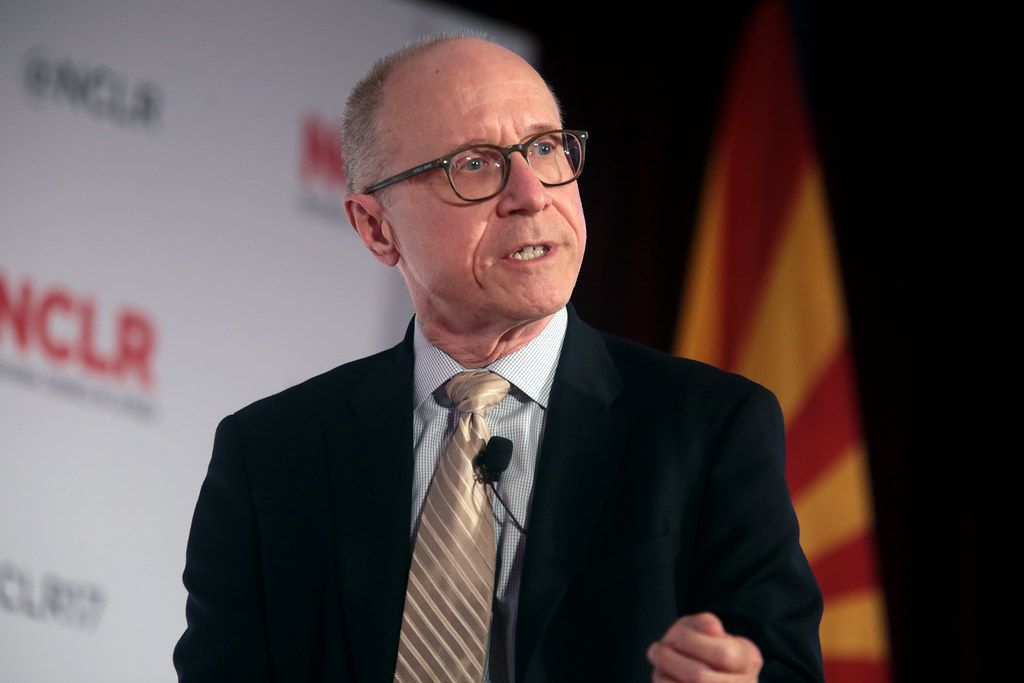
The landscape of economic data in the United States has been thrust into sharp focus, following a weaker-than-expected July 2025 jobs report and the subsequent, highly publicized dismissal of the Bureau of Labor Statistics (BLS) Commissioner, Erika McEntarfer. This dramatic turn of events has ignited a robust debate spanning political and financial circles, with leaders weighing in on both the accuracy of government statistics and the implications of perceived political interference.
At the center of this dialogue is Brian Moynihan, Chairman and CEO of Bank of America. Appearing on CBS News’ “Face the Nation with Margaret Brennan,” Moynihan offered a nuanced perspective on the situation, acknowledging the political currents at play while simultaneously underscoring inherent challenges in the current methods of federal employment data collection. His insights, shared from the vantage point of one of the nation’s largest financial institutions, provide a crucial lens through which to examine these unfolding events.
The BLS reported its July jobs figures on a Friday, revealing that the U.S. economy had added only 73,000 jobs in the preceding month. This figure fell significantly short of the 110,000 jobs gain that economists, polled by LSEG, had estimated, signaling a marked cooling in job growth amid broader economic uncertainty. The report itself became a flashpoint, triggering immediate and forceful reactions from the highest levels of government.

Beyond the headline number for July, the BLS also disclosed what it termed a “larger than normal” set of downward revisions to job gains from the prior two months. Specifically, May’s initial gain of 144,000 jobs was revised down by a substantial 125,000, settling at a mere 19,000 jobs added. June’s reported gain of 147,000 jobs also saw a significant downward revision of 133,000, bringing it down to just 14,000 jobs.
These adjustments collectively left employment levels in May and June with 258,000 fewer jobs than had been initially reported. Such a significant re-evaluation of past data drew immediate scrutiny. Economists at Goldman Sachs noted the gravity of these revisions, identifying them as the largest two-month revision for May and June since 1968, excluding periods of recession, underscoring the unusual nature of the latest figures.
In response to these revised and diminished job numbers, President Donald Trump swiftly took to his Truth Social platform. He announced that he had directed his administration to fire BLS Commissioner Erika McEntarfer, leveling accusations that she had manipulated the jobs figures for political purposes. Trump’s direct intervention signaled an unprecedented level of presidential dissatisfaction with a key statistical agency.
President Trump asserted that the country’s “Jobs Numbers” were being produced by a “Biden Appointee,” Dr. Erika McEntarfer. He accused her of having “faked the Jobs Numbers before the Election to try and boost Kamala’s chances of Victory.” He further claimed that the BLS had “overstated the Jobs Growth in March 2024 by approximately 818,000 and, then again, right before the 2024 Presidential Election, in August and September, by 112,000.” Trump emphasized, “These were Records – No one can be that wrong?”

He continued to articulate his demand for uncompromised accuracy, declaring, “We need accurate Jobs Numbers. I have directed my Team to fire this Biden Political Appointee, IMMEDIATELY. She will be replaced with someone much more competent and qualified.” For Trump, the integrity of these vital statistics was paramount, stating, “Important numbers like this must be fair and accurate; they can’t be manipulated for political purposes.” He specifically cited the 73,000 jobs added in July as “a shock!” and, more importantly, highlighted the “major mistake” of a 258,000 jobs downward revision in the two prior months, noting that “Similar things happened in the first part of the year, always to the negative.”
Over the weekend following the report, President Trump reiterated his stance, stating his administration would “announce a new statistician sometime over the next 3, 4 days.” He conveyed a profound lack of trust in the recently announced figures, proclaiming, “We had no confidence, the numbers were ridiculous that she announced,” and that “it’s a scam, in my opinion.” This rhetoric underscores a significant breach of confidence between the executive branch and a traditionally non-partisan statistical agency.
The president intensified his claims on Monday, asserting on Truth Social that “Last week’s Job’s Report was RIGGED, just like the numbers prior to the Presidential Election were Rigged.” He attributed the “massive, record-setting revisions” to an effort “in favor of the Radical Left Democrats,” claiming these adjustments were made “to cover up, and level out, the FAKE political numbers that were CONCOCTED in order to make a great Republican Success look less stellar!!!” He concluded by promising, “I will pick an exceptional replacement.”

Curiously, President Trump had previously praised BLS reports when they presented a favorable picture of the economy during his administration. In May, the White House had stated that April’s jobs report “proved” that Trump was “revitalizing” the economy. In June, he posted “GREAT JOBS NUMBERS” on Truth Social. In March, he even brought up “how good some of these numbers are” while in the Oval Office. This shift in tone, from commendation to condemnation, highlights the political nature of his recent criticisms.
Bank of America CEO Brian Moynihan, when asked on “Face the Nation” whether he was concerned about the firing of the BLS commissioner and if he perceived political pressure, responded with a measured assessment. “Well, I think that’s more politics,” Moynihan observed. His statement acknowledged the political backdrop of the dismissal while also shifting focus to the underlying methodologies of data collection.
Moynihan articulated his belief that the agency’s data collection processes have experienced diminished response rates in recent years, a factor he cited as contributing to the frequent revisions of the monthly jobs report. He specifically pointed out, “It’s 2025 and the data should be able to be – they use surveys and things like that, which, frankly, just aren’t as effective anymore. So if you look at the rate of people who respond to their surveys, it’s down from a 60% level to a 50% level.”

In contrast to the BLS’s survey-based approach, Moynihan explained that Bank of America eschews surveys for assessing labor market data. Instead, the financial institution relies on its extensive internal data to ascertain the real-time activities of businesses and consumers. “We watch what consumers do. We watch what businesses do,” he stated, emphasizing a practical, transactional approach to economic insight.
Moynihan advocated for a more resilient and understandable data collection system from the BLS. He suggested that the agency could leverage alternative data sources to gain a more accurate and consistent picture of the labor market. “They can get this data, I think, other ways, and I think that’s where the focus ought to be,” he posited, signaling a need for methodological evolution within government statistical bodies.
He further elaborated on the disruptive impact of frequent revisions, explaining, “How do we get the data to be more resilient and more predictable and more understandable? Because what bounces around is restatements, and that was one of the largest restatements, going back five or seven years in the pandemic, five years in the pandemic, that creates doubt around it.” For Moynihan, the volatility introduced by significant restatements erodes confidence in the underlying economic narrative.
Moynihan’s call for modernization extended to a tangible investment in data infrastructure. He urged, “let’s spend some money. Let’s bring the information together. Let’s find where else in the government money is reported. We report millions and millions of data points to the government every day. The data is out there somewhere.” This highlights a belief that vast amounts of relevant data already exist within various government agencies, waiting to be integrated for a more comprehensive view.

Erika McEntarfer, the now-former BLS Commissioner, had been confirmed by the Senate in January 2024 with overwhelming bipartisan support, receiving an 86-8 vote. Notably, current Vice President and then-Senator JD Vance, a Republican from Ohio, was among those who voted in support of her confirmation. This history adds a layer of complexity to the narrative, as Vice President Vance’s communications director, William Martin, later stated that “Vice President Vance is completely aligned with President Trump and was glad to see him dismiss the BLS commissioner.
Martin further clarified Vance’s position, asserting, “The only thing his confirmation vote indicates is that he was at times willing to let nominations move forward even when he disagreed with them.” He emphasized that “President Trump has the right to hire and fire the people he wants to staff the government he was elected in a landslide to run, and it’s high time the leftwing activists in the mainstream media recognize that simple fact,” reflecting a strong backing of the president’s prerogative.
The firing of Commissioner McEntarfer sent ripples through Washington, drawing criticism from various quarters. Max Stier, the CEO of the non-partisan Partnership for Public Service, voiced serious concerns, stating, “President Trump is once again destroying the credibility of our government by firing expert and nonpartisan officials because he does not like the facts that they present.” Stier warned that “Governments that go down this path find themselves in ugly territory very quickly.

William Beach, whom Trump himself had picked in his first term to head the Bureau of Labor Statistics, also publicly criticized the decision. Beach, speaking on CNN’s State of the Union, called the move an “unfounded” action that will “undermine confidence in a key data set on the US economy.” He plainly stated, “This is damaging,” and added, “I don’t know that there’s any grounds at all for this firing… And it really hurts the statistical system. It undermines credibility in BLS.”
Despite the controversy, Beach expressed continued trust in future BLS data, emphasizing that the agency’s staff are “some of the most loyal Americans you can imagine,” making the bureau “the finest statistical agency in the entire world.” This sentiment suggests that the integrity of the institution may endure even amidst political turbulence, thanks to the dedication of its career professionals.
Former Labor Department officials also weighed in with strong condemnations. Julie Su, who served as Labor secretary during the Biden administration, highlighted the dedication of the agency’s personnel, noting, “The work is done largely by expert career staff who do their jobs with care and pride.” She added that these are “Career staff who have also been attacked and vilified by this president.” Daniel Koh, former Labor Department chief of staff, echoed this, writing on X, “Nobody is faking numbers. Revisions happen all the time.”

Elaine Chao, former Secretary of Transportation, famously likened the firing to a “Queen of Hearts” moment on CNBC, implying an arbitrary display of power. This strong reaction from a former Cabinet official underscores the perceived overreach and potential for destabilization that such actions can introduce into the governmental framework.
Kevin Hassett, Trump’s chief economic adviser at the White House, offered a contrasting perspective, alleging that the large jobs data revisions were “poorly explained” and sufficient grounds for a “fresh set of eyes” at the BLS. He sought to contradict Beach’s portrayal of the agency as politically neutral. When pressed on whether Trump would fire anyone offering data he disagreed with, Hassett disagreed, stating, “No, absolutely not. The president wants his own people there so that when we see the numbers, they’re more transparent and more reliable.
The Bureau of Labor Statistics operates as the primary agency responsible for collecting information about the nation’s labor markets and economy. Its mission statement clearly outlines its purpose: to “measure labor market activity, working conditions, price changes, and productivity in the U.S. economy to support public and private decision making.” The agency gathers this crucial information through various methods, including online surveys, mail, phone calls, and in-person visits to U.S. businesses and consumers.

It is a fundamental aspect of large-scale economic data collection that agencies like the BLS routinely revise their figures. This applies not only to job reports but also to GDP figures and inflation data. Such revisions often occur due to the sheer scale of the U.S. economy, as well as lags in data collection and varying response rates to surveys. As Daniel Koh noted, revisions are a common, indeed expected, part of the process and do not inherently imply wrongdoing or manipulation.
The swift removal of a high-ranking, non-partisan official under such circumstances has inevitably raised significant concerns about the independence and credibility of economic reporting. Many observers and analysts question whether political motivations exerted undue influence on the decision, adding a new layer of uncertainty for investors and policymakers who rely on consistent and accurate reporting for informed decision-making.
The politicization of economic data and the potential for political interference in its production is a phenomenon typically associated with non-democratic countries, a stark contrast to the historical independence of U.S. statistical agencies. Labor Secretary Lori Chavez-DeRemer, following the firing, emphasized, “our jobs numbers must be fair, accurate, and never manipulated for political purposes,” underscoring the gravity of maintaining data integrity.

Any erosion of trustworthy data poses a substantial risk, potentially impacting businesses, consumers, lending practices, and the efficacy of policymakers. Historically, the United States‘ economic data has been revered globally as the gold standard, largely due to the perceived independence afforded to the agencies tasked with its collection. This recent development challenges that long-standing reputation.
As the administration prepares to nominate a new BLS leader, the repercussions of this incident will continue to unfold. The debate extends beyond a single jobs report or a specific firing; it encompasses the very foundation of how America understands its economic health. The incident has spurred essential discussions about the future of economic forecasting and the critical importance of insulating statistical processes from political pressures.
The call from figures like Brian Moynihan to modernize government data collection, to “spend some money” and “bring the information together” from the “millions and millions of data points” already reported, resonates deeply. It highlights a pragmatic path forward, aiming to enhance the resilience, predictability, and understandability of the data that underpins national economic confidence. The challenge now lies in ensuring that the pursuit of more accurate, real-time economic insights is not undermined by political expediency, safeguarding the integrity of the data upon which the nation’s economic future is built.



